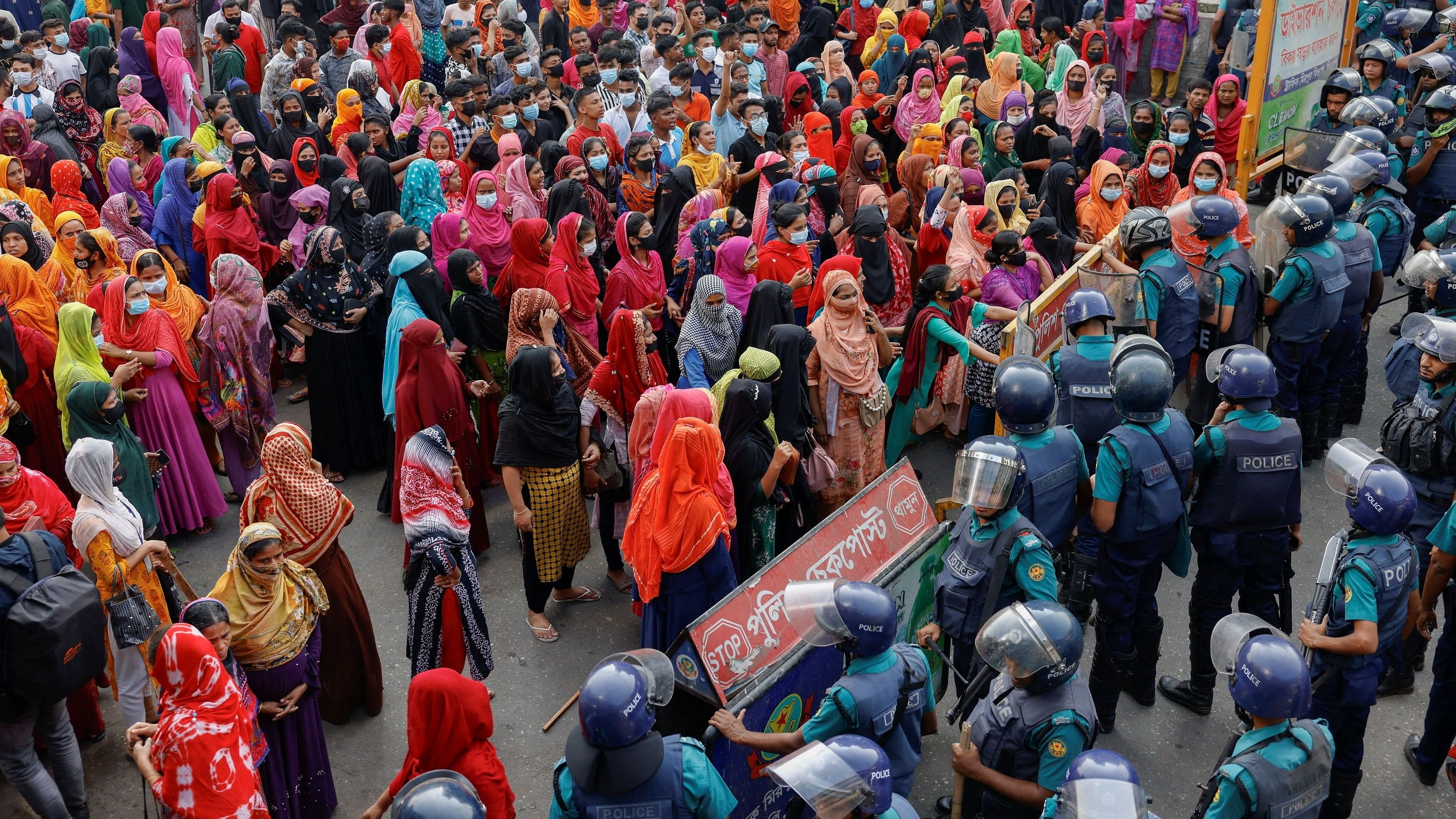
File Photo: Garment industry workers push a barricade, as they protest on the street demanding a wage raise, at Mirpur area of Dhaka, Bangladesh, November 12, 2023.
Reuters Photo
Dhaka: Bangladesh garment factories have fired hundreds of workers since protests in October demanding higher wages, three labour unions representing half a million workers told Reuters this week, while many others are on the run fearing arrest.
Clashes during the protests, which ran alongside wider anti-government demonstrations by the opposition ahead of the Jan. 7 general election, killed four workers and injured dozens of others, with the police filing cases against hundreds of unidentified people for vandalism.
The government agreed in November to raise minimum wages by more than 56% to 12,500 taka ($114) a month, which many workers have still called too low. Bangladesh has become the world's second biggest garment exporter after China partly thanks to low wages.
The three unions - Bangladesh Garments and Industrial Workers Federation, National Garment Workers Federation and Bangladesh Garments Workers Unity Council - estimated that 1,000 to 5,000 workers had either been fired in the last two months or had gone into hiding.
But Faruque Hassan, president of the Bangladesh Garment Manufacturers and Exporters Association, said he was not aware of any retrenchments, adding that the industry body would act if "any such incidents are brought to our notice".
Bangladesh's Ministry of Labour did not respond to a request for comment. Momanul Islam, a senior police official in Ashila, a garment hub, said police had not arrested any garment worker for joining the protests.
Bangladesh's more than 4,000 garment factories rely on some 4 million workers to supply major Western brands.
In October, brands including Abercrombie Fitch, Adidas, GAP, Levi Strauss, Puma and PVH and Under Armour urged the government to ensure there was no retaliation against workers seeking fair wages.
Delowar Hossin, a garment worker with Ducati Apparels, said he was fired earlier this month without any explanation or payment of severance dues.
"I was just blocked from entering the factory," said Hossin, who now works part-time as a mason.
Ducati's managing director, Khayer Mia, said he had paid full salaries though the protests had shut his factory for 10 days.
"I love my workers and factory like my family, but some very, very stupid workers without any reason ... they broke all the factory (windows)," he said, blaming some 15 to 20 workers. He declined to answer a question about firing Hossin.